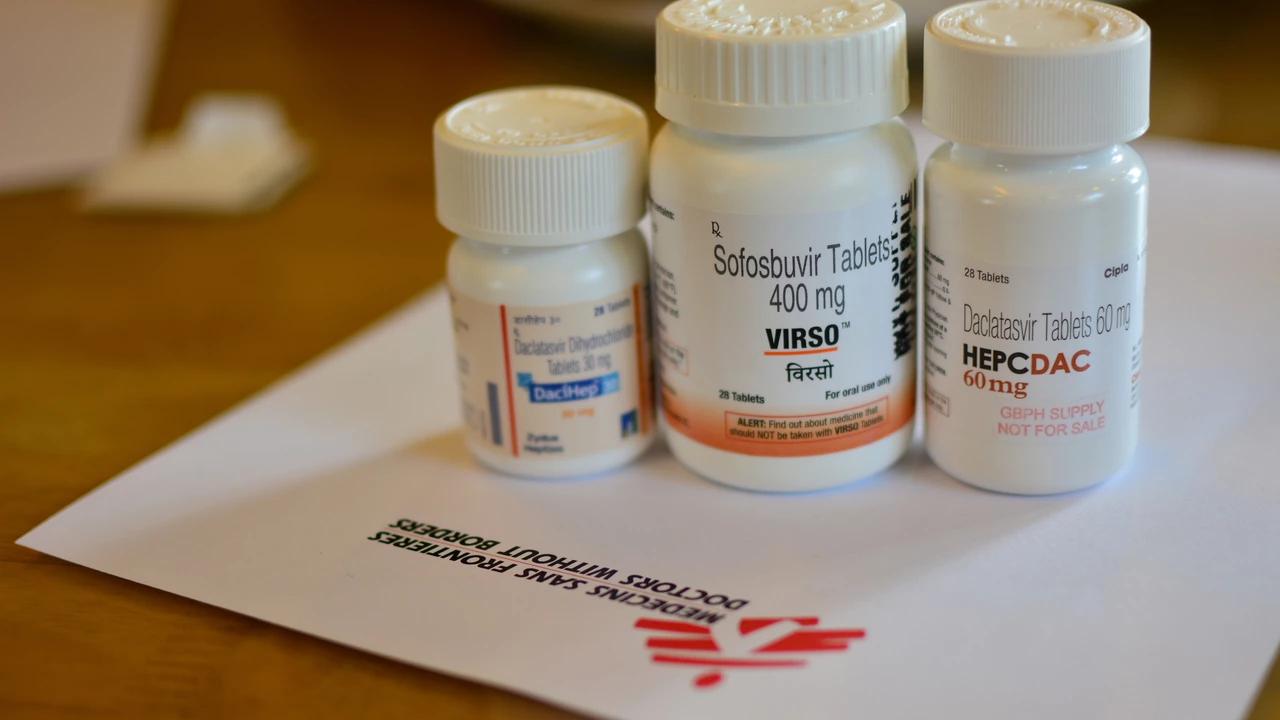Sofosbuvir: quick facts, uses, and what patients should know
Want a plain answer about sofosbuvir? It’s a direct-acting antiviral pill used to cure hepatitis C (HCV). Doctors prescribe it as part of combination therapy, and modern regimens with sofosbuvir routinely reach cure rates above 90% for most HCV types. This page focuses on real-world details you can use when talking with your clinician or checking your prescription.
How it works and common combinations
Sofosbuvir blocks the HCV NS5B polymerase, a viral enzyme the virus needs to copy itself. On its own it’s not usually given; it’s paired with another antiviral to cover different steps of the virus life cycle. Common combos you’ll hear about are:
- sofosbuvir + ledipasvir (brand: Harvoni)
- sofosbuvir + velpatasvir (brand: Epclusa)
- sofosbuvir + velpatasvir + voxilaprevir (brand: Vosevi) for some resistant cases
Dosing, treatment length, and cure rates
Typical sofosbuvir dosing is 400 mg once daily by mouth. Treatment length ranges from 8 to 24 weeks depending on the combination, genotype, and whether liver damage or prior treatment exists. Many people finish therapy and achieve sustained virologic response at 12 weeks after treatment (SVR12) — that’s the working definition of a cure — with rates commonly above 90–95% for modern regimens.
Before starting, clinicians check viral genotype, liver tests, and sometimes resistance testing. During treatment they monitor liver enzymes and viral load. Bring a list of all your medicines; interactions matter.
Side effects are usually mild: headache, fatigue, and nausea are most common. Adding ribavirin or advanced liver disease can increase side effects. One well-known drug interaction is with amiodarone — combining it with sofosbuvir can cause slow heart rate; tell your doctor if you take heart meds.
Kidney function matters. Sofosbuvir is cleared by the kidneys, so people with severe renal impairment need special assessment. In some cases, alternative antiviral regimens that don’t rely on sofosbuvir are preferred.
Pregnancy and planning: ribavirin is strongly teratogenic, so if your regimen includes ribavirin both partners may need contraception. Discuss pregnancy plans with your provider before starting treatment.
Thinking about cost or buying online? Use reputable pharmacies and check with your clinic or local patient support programs — many countries and charities help cover direct-acting antiviral costs. Avoid unknown foreign sites that don’t require a prescription.
Questions to ask your doctor: Which sofosbuvir combo fits my genotype? How long will I be treated? What tests will you run during and after treatment? Who should I contact about side effects? Having these answers up front makes the process smoother and safer.
If you have hepatitis C or a positive test, talk to a specialist — modern treatments cure most people, and sofosbuvir-based regimens are a major reason why.

